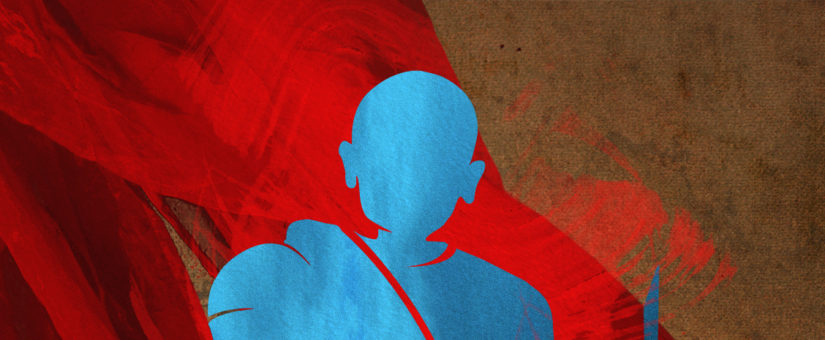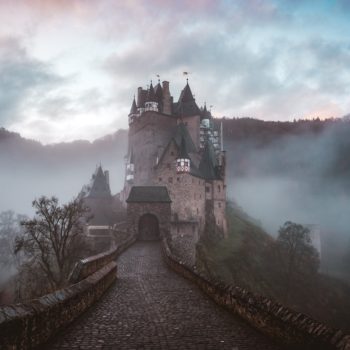
Transmitting the Strange: A Conversation with Lydia Kwa
- Posted by Augur Blog
- On January 22, 2020
- 0 Comments
- author interview, bipoc, lydia kwa, speculative fiction
Interview by Yilin Wang
I first heard Lydia read at the panel “Linking Past and Present: Writing about Language and Place” at Growing Room 2017. Since then, we have shared interesting conversations over tea or online, discussing a range of topics such as writing, martial arts, and folklore. After reading her novels Oracle Bone and The Walking Boy recently, I reached out to interview her about her books, inspiration, writing process, approach to research, and her third novel in the series.

Your novels Oracle Bone and The Walking Boy are the first two books of a chuánqí (“transmitting the strange”) trilogy. The term chuánqí refers to a genre of short prose that was popularized in ancient Táng dynasty China, with common elements like history, romance, supernatural beings and occurrences, and wandering martial arts heroes. I see all of these elements reflected in your series.
What drew you to start writing a chuánqí series? How do you interpret the idea of “transmitting the strange”? Did any specific chuánqí tales from the Táng dynasty or later periods inspire your books?
My first encounter of tales of the strange was reading Pǔ Sōnglíng’s stories in Strange Tales from a Chinese Studio (translated by John Minford). He was writing in the 18th century, during the Qīng Dynasty. I was so taken with how powerful the stories were, in providing societal critique and in suggesting various alternative moral and relational ways to the norms of the times. Pǔ spoke out against corrupt officials, sided with the poor and ill-treated.
Later, I found an academic book by Daniel Hsieh, Women and Love in Early Chinese Fiction, on a visit to Hong Kong and in the bookstore at CUHK! This book provided a rich and engaging entry into the world of chuánqí tales. I was deeply annoyed, however, by the pervasive misogyny through the majority of these tales. As postulated by Daniel Hsieh, the tales that were known, were by male scholars, and their depictions of fox-spirits and ghosts were female and malevolent. This spurred a feminist urge to write a protagonist that is female, half-fox, half-human, that is motivated by compassion and wisdom.
In addition to chuánqí, I can also spot traces of many other literary influences, such as wǔxiá (martial arts fiction), mythology from The Classic of Mountain and Sea, Táo Yuānmíng’s Peach Blossom Spring, and classic Chinese novels like Dream of the Red Chamber and Journey to the West. Do you have a favourite text among the many that you allude to? How have these stories influenced you and your writing?
I don’t have a favourite text among those you listed, but I tend to gravitate toward poetry and mythology. That said, Chinese fictional narratives also inspire me to think outside of the familiar, singular narratives that remain quite prevalent in literary fiction in the English publishing world, even though there have been widening interests in experimental works. For example, The Water Margin is such an expansive work involving many characters, that it simply blew my mind to read it.
At the same time, you play with many of the tropes of the genres and stories that you allude to, pushing against genre and reader expectations. I really appreciate the ways that your stories challenge traditional themes of revenge and violence, as well as focus on the perspectives of outsiders and marginalized characters.
What appeals to you about subverting tropes and norms? What are you writing against and towards in your stories?
I am interested in observing the traditions—whether literary or cultural—with the mind to subvert them through creation of alternative narratives. Yes, I am interested in outsiders, those who are marginalized, those who are queer or non-normative in other ways. I wish to imagine worlds that are outside of the familiar tropes and boxes; I am interested in bringing myself and the readers of my work, to fresh inner landscapes and possibilities. I am writing against my own presumptuousness and assumptions; I am writing against comfort in some instances; I have a strong desire to engage my own power to create alternate realities; and to inspire others to do so.
I believe it was Anthony Bourdain who said this: “Without experimentation, a willingness to ask questions and try new things, we shall surely become static, repetitive, and moribund.”
Oracle Bone describes the long, careful, and ritualistic process of translation that Xuánzàng and his team undertake to translate scrolls of Sakyamuni Buddha’s teachings that he brought back from his travels. In The Walking Boy, Wǎn’ér, the Imperial Secretary, has been assigned the official task of recording and compiling the Palace Diaries of Nǔ Huáng, Empress Wǔ Zétiān, while Wǎn’ér also writes secret poems of her own.
For you, what is the power of passing on stories through acts of writing, transcription, and translation?
Do we simply literally transcribe—or do we actively engage the text or story with our individual consciousness, and transform the content through our engagement? It all boils down to power, and empowerment, and our creative exercise of will and intent as we write and translate.
In a 2017 interview with Rob McLennan, you describe your writing process as “very slow, very mysterious, very intuitive.” You first published The Walking Boy in 2005, and in 2017, released the prequel Oracle Bone. Earlier this year in 2019, you released a revised and critically different edition of The Walking Boy.
Can you share with us some of the joyful and challenging moments that you have encountered while working on and revising these novels? How has your novel writing process evolved over the years?
Very good question—to which I will answer, that I’m not quite sure how my process has evolved over the years. Perhaps the process has become even more chaotic and complex, and I am more willing to surrender to the mystery of the engagement.
Every novel I work on seems to have its set of unique demands; I thought I’d trained to run the marathon, and then the next challenge turns out to be a trans-pacific swim?!!
Someone once asked me what was the most difficult thing about writing a novel, and I replied, “That my ego gets crushed.”
But in defence of joy: Ah! There are numerous pleasures in losing oneself, so that characters and narratives materialize. I have also said that writing has kept me sane, or at least saner than if I don’t write.
As a reader of fantasy and speculative fiction, I find your use of third-person omniscient narration to be very compelling. As a writer, I find this viewpoint to be very difficult and overwhelming to handle due to its seeming lack of constraints and rules.
What tips do you have for writing in a third-person omniscient perspective?
I once made the quip that the characters in The Walking Boy moved in with me for almost five years but didn’t do a single bit of housework! But seriously, writing from a third-person omniscient perspective is more like writing from within each character one at a time. Who is this person? What does it feel like to be inside that body, that mind? How do they move about in the world? What is their psychology? Their background? What kind of trauma did they experience, if any, and what did they do to deal with that trauma? Did the trauma embitter them? Did they lose themselves in a re-enactment of their past traumas? What kind of agency do they exhibit?
You’re trained in martial arts, specifically ki aikido and taiji. (Is this accurate? Did I miss anything?) How has your background in martial arts influenced your writing? How have your martial arts knowledge influenced your approach to writing fight scenes?
Yes, I’ve trained in ki aikido and tàijí mostly; but I’ve dabbled in xíngyìquán, bā guà, Tibetan White Crane kungfu, and qìgōng. I’m a big fan of certain martial arts movies. In writing the major fight scene at the inn, in Oracle Bone, for instance, I had to imagine how it would work to fight or move, according to my limited knowledge of martial arts. I vetted the scene with my naturopath who has an extensive history in martial arts—he thought the scene worked, which was encouraging.
In terms of how my background in martial arts influences my writing: I value the importance of taking breaks from sitting on my butt for too long; I try to breathe deeply as often as I can; I also have various kinds of meditation practices which help me (when I do them). I do think of developing a strong but responsive approach to the writing, as if it were my practice partner or opponent (depending on what’s happening). I make sure I continue to learn some form of martial arts so it keeps my mind and body fluid and engaged—I am sure this practice helps me to persevere in my writing practice.
Your stories are very rich in worldbuilding details, whether in terms of descriptions of food and setting, or in your use of time measurements and the ancient Chinese calendar system.
Do you conduct research before you start writing or throughout the writing process? What kind of research do you focus on for writing a novel set in historical times? Do you have any interesting pieces of research that you came across but couldn’t include?
Both—I conduct research before I start writing, but most of the research is being done throughout the writing process. I let the narrative guide me in directing what kind of research I need to do. There are lots of interesting tidbits I find along the way I can’t use, too many to name here! The mind boggles.
The motif of travel is central to The Walking Boy. I read in your previous interviews that you have traveled to Nara, Japan for research, because of its similarities to Cháng’ān.
What was the trip like? If you could travel to any place and/or time period for research or inspiration, where would you want to visit and why?
I loved that trip to Nara in December 2002. I was particularly inspired by my visit to Horyuji temple. I write about this trip in my long poem sinuous. If I could travel to any place or time period, I would like to go far back to the Jomon period in Japan (around 14,000 BCE to 300 BCE). I’m interested in the clay vessels that were produced at the time, using rope around the clay when still wet.
What are you working on now? Can you tell us a little about the third and final book in the trilogy?
Ah yes, the third and last novel in the chuánqí trilogy! It’s titled “A Dream Wants Waking”—referencing a couplet associated with the oracle bone in the first novel.
The manuscript so far is in its early stages; but it is already feeling like ‘quite the beast’ and I mean this with great respect toward the creature 🙂 It is mostly set in 23rd century, in a fictional Luòyáng, a city divided into various zones which includes Dream Zone where the undesirables such as chimeric creatures, ghosts, cast-off shadow selves, are confined. This novel is my attempt at science fiction/speculative fiction, with narrative references to Oracle Bone and The Walking Boy. Some of the characters are humans, but others are non-human.
YILIN WANG is a writer, Chinese-English translator, and editor living on the traditional, ancestral, and unceded land of the Musqueam, Squamish, and Tsleil-Waututh FIrst Nations. Her fiction, poetry, and nonfiction have appeared in Clarkesworld, The Malahat Review, carte blanche, Abyss & Apex, Grain, CV2, Arc Poetry Magazine, The Tyee, The Toronto Star, and elsewhere. She is an assistant editor for Room and has been shortlisted for the David TK Wong Fellowship.
LYDIA KWA lives and works on the unceded and traditional territories of the Coast Salish peoples. She has published two books of poetry: The Colours of Heroines and sinuous. She has published four novels: This Place Called Absence; The Walking Boy;Pulse; andOracle Bone. She has also exhibited her art (Centre A, 2014; Massy Galleries, 2018).




0 Comments